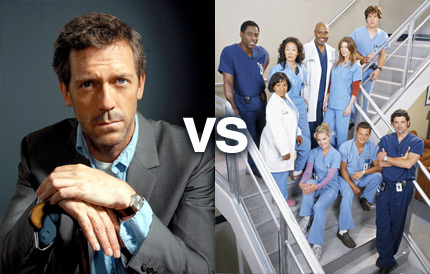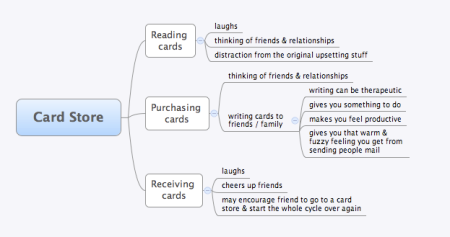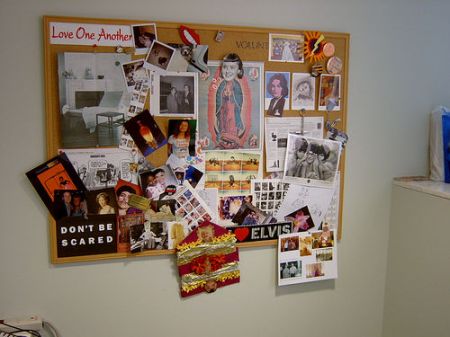just checking to see if this shows up in the RSS feed
test test test
May 15, 2011The Dr. Drew Response
November 14, 2009Lately, I’ve been reading Dr. Drew’s latest book, “The Mirror Effect.” It addresses celebrity narcissism and the extreme behavior that goes along with it. Dr. Drew does a great job at highlighting what has become typical tabloid material – multiple stints in rehab, sex tapes, drug use, eating disorders, etc. – and explaining the self-destructive pathology behind it.
Dr. Drew references troubling celebrity behavior over and over throughout the book. As I read, I found that most responses to this self-destructiveness fit in one of three categories (depending on one’s own background):
3 responses to troubling celebrity behavior:
- Dr. Drew (empathetic / sympathetic)
- “Regular” society (intrigued)
- Relaters (Individuals with their own psychopathology)
The Dr. Drew Response
“As a group, however, [celebrities] often behaved in ways that unnerved and puzzled me.”
“…their behavior makes my heart ache for them.”
I’m coining this the Dr. Drew Response since I can’t think of any other word to better describes the reaction. His heart aches! He sees someone being self-destructive and he cares and feels their pain. It’s sympathy + knowledge + understanding + insight.
“Regular” society
“…this kind of behavior is portrayed as tragically glamorous, dramatically alluring, and, most alarmingly, normal and expected.”
A lot of people are interested in the self-destructive behavior of celebrities. It is a little bit of an obsession: Is Nicole Richie losing weight? Is Lindsay using? Is Amy Winehouse still alive? People want to know. The troubling behavior is intriguing and the press does a great job at, in essence, kicking celebrities when they’re down.
Relaters
“Witnessing such behavior also tends to provoke our own narcissistic impulses, causing us to feel envy, and tempting us to act like the celebrities we admire.”
“But for anyone who has experienced childhood trauma – the fundamental source of pathological narcissism – surrendering to such impulses can lead even mildly narcissistic people to spiral out of control with devastating results.”
Individuals with their own psychopathology or traumatic histories can be tempted (or even feel envious) by the self-destructive behavior of celebrities. There’s something triggering about it that makes these people want to engage in the same self-destructive behavior.
So there we go: In this world we have Dr. Drews, Regulars, and Relaters. I think that your response can change depending on the situation, and that it applies to anyone struggling – not just celebrities.
For example, I think about this girl who went to my college and was very obviously struggling with an eating disorder. “Regular” people would gossip about how sick she was. You’d hear the “I see her at the gym every single morning” and “I heard she eats a plate of broccoli for dinner” comments. Yes, it’s wrong and mean, but unfortunately that’s reality (at least on college campuses). Now, I was a Relater (struggling with an ED myself), so this girl kind of triggered me. I didn’t want to be that sick, but seeing her around campus would almost encourage my eating disorder; tempt me to cut corners, lose just 5 lb., eat a plate of broccoli for dinner, etc. That drove me CRAZY. I didn’t want to be a Relater – I wanted to be a Dr. Drew. I wanted to just empathize with her, wish she would get help, recognize how miserable she probably felt, and know how tough things were for her right now.
This is still a goal of mine: That Dr. Drew Response.
greythinking.com
November 13, 2009As of today, we are greythinking.com! The original address, greythinking.wordpress.com, will continue to work, as will all of the original posts and links. I figured it was about time that I got a “real” domain, though.
If anyone has problems with their RSS feeds (though you shouldn’t), let me know….
Sharing therapists
November 11, 2009I’ve been in all different levels of treatment with numerous professionals and various treatment centers, and overall I’d have to say that both group and individual therapy are important (and beneficial) in recovery. With group, there are several people who you can bounce ideas off of, get advice from, relate to, and rely on for support. I feel like most of the real therapy work happens in individual, though, where you can focus on your specific issues, goals, etc. I really do think it helps to have both individual and group components to your treatment plan, though.
This said… something that has always thrown me off is having my individual therapist as my group therapist. This has happened to me a couple of times, in residential, IOP, outpatient, etc. It changes the dynamic for me for a couple of reasons:
- Every time I said something to the group I though, “has she heard this already? did I tell her this before?”
- I read (too much) into the things that she said
- If I were having a bad day, she usually noticed
- I wondered if there would be repercussions to the things I said (for example, I didn’t want to mention something in passing and have to spend the next two individual sessions processing it).
- I worried that I’d treat group like an individual session and spend too much of the total time focusing on my own issues
These aren’t all bad things. It’s good that my therapist would recognize that I was having a crappy day, since I likely wouldn’t have brought it up and the therapists who didn’t know me as well probably didn’t know anything was not right. She also probably pushed me a little harder, since we did have a relationship and she could do that comfortably. So, for the most part, it was good for me to have some groups with my individual therapists.
With all of this said, where things start to get a little messier is when other people in the group also share the same individual therapist. I’ve been in some programs where everyone had the same primary therapist and others where there were a handful of individual therapists that also ran groups. Both situations add that extra variable to the equation – sharing a therapist with another person in your group.
The therapeutic relationship is so unique that sometimes I think it can be challenging to “share” your therapist with someone else that you know. I’m not concerned about the confidentiality as much as the dynamics of the relationship. As the patient, you only have one therapist. When you have a good relationship, it feels special. You feel like you have this connection that maybe other patients don’t have. It makes sense – every week you are confiding in this person, trusting him/her to guide you and to give you some insight. This relationship and person mean something to you. He/she is a part of your life.
Being in a group with your therapist and another one of her patients is a reminder that you’re not the only patient. You know this logically, but the reminder can be kinda tough. Sometimes it’s rough to see her concerned and focusing on someone else. It can feel invalidating. It can feel like a competition between you and the other patient. It can be hurtful if you feel like you’re being ignored or that your interaction with the therapist is different. It really adds a dozen additional variables into the therapeutic relationship equation.
There are a lot of things that make eating disorder groups tough. Girls get competitive over eating, weight, exercise, etc – even if you don’t allow talk about numbers. You have to be careful who you put in a group together, and even having one or two pretty anti-recovery people can change the whole atmosphere. Sharing a therapist with several of the girls almost adds another thing to compete over. Even if you refuse to participate in the competition to get the most attention or require the most concern (really, these competitions exist!), it can be hurtful to to feel neglected or uncared about. I don’t think this is a topic that is often addressed in groups… but I think that sharing a therapist with other girls, and all being in the same group together led by your primary therapist, can be a little tricky…
Alternative coping – a tough sell
October 31, 2009I thought that these quotes would be especially appropriate after my series on coping skills.
Dr. Meredith Grey: In the hospital, we see addiction every day. It’s shocking, how many kinds of addiction exist. It would be too easy if it was just drugs and booze and cigarettes. I think the hardest part of kicking a habit is wanting to kick it. I mean, we get addicted for a reason, right? Often, too often, things that start out as just a normal part of your life at some point cross the line to obsessive, compulsive, out of control. It’s the high we’re chasing, the high that makes everything else fade away.
Dr. Meredith Grey: The thing about addiction is, it never ends well. Because eventually, whatever it is that was getting us high, stops feeling good, and starts to hurt. Still, they say you don’t kick the habit until you hit rock bottom. But how do you know when you are there? Because no matter how badly a thing is hurting us, sometimes, letting it go hurts even worse.
I’ve talked about this before, but I think that wanting to want to recover is a big roadblock in eating disorder treatment. Meredith explains it very well — we get addicted for a reason. The ED plays a role in our lives. You don’t go seeking an eating disorder… but for whatever reason (I’m sure largely biological), coping via food / exercise works for you. Restricting did give me some kind of a high, but more importantly it did make “everything else fade away.” Of course it didn’t SOLVE any issues… but it did somehow mask them and make them less important to me.
The eating disorder doesn’t “work” for me like it used to. It doesn’t give me that relief that I’m looking for. It doesn’t make stressors go away. 10 years ago, I felt some kind of sick accomplishment from restricting. Like somehow not eating made everything better. These days, maybe it deadens things a little bit, but largely it throws off my blood sugar and makes me feel like crap.
I’ll admit that for whatever reason, in many situations it’s still my first instinct to use the ED to cope. All the coping mechanisms I mentioned are attempts to replace the disorderedness with something healthier. But really, it takes three “healthy” coping mechanisms to offset one unhealthy one. The kudos chart is an everyday thing and a bad day might require coloring AND card shops.
I think a lot of people struggle with feeling like they still need their ED. Even if it is kinda ruining their lives and not working like it did in the past, they still feel like they won’t be able to deal without it. If you’re trying to replace that disorderedness with bubble baths and crafts — well, that’s a tough sell.
I’m not saying it’s not worth it or that EDs are just unhealthy coping skills… I’m just saying that recovery takes a lot of coping skills. You burn some of them out (for instance, reading does not help me like it used to) and have to be creative and come up with new ones. And sometimes they feel ridiculous. Heck, I’m in my mid-20s and googling “print complicated coloring pages.” My kudos chart is remarkably similar to the sticker chore chart that I had when I was seven. I’m not sure any of this is “normal,” but hey, it helps. Ridiculous or not — just go with it.
Underrated coping skill: DVDs
October 27, 2009This is the sixth post in the Grey Thinking series, Five of the most underrated coping skills.

This isn’t going to come as any surprise to those of you who have followed Grey Thinking for any length of time…. but watching DVDs of TV series is one of my favorite “coping skills.” I may be stretching the idea of a “coping skill” a little bit here, but anything to justify my House marathons…
I like to watch four hours of old Grey’s Anatomy episodes (especially during evenings that I’m depressed) because I can check out. I can focus on Meredith’s dark and twisty issues and secretly hope that Meredith and Derek get back together (clearly I’m in the middle of season three right now). And it’s not that House’s misery or Meredith’s really screwed up love life makes me feel better about my own or anything. I just like relationships. And sarcasm.
Checking out like this is probably not THE healthiest coping mechanism – but it’s much better than the eating disorder. Sometimes I am overwhelmed and I need to check out. It’s hard for me to turn off my brain, in a sense. My mind can wander while I read a book, exercise, walk the dog, clean, etc. For some reason though, my mind doesn’t wander when I’m watching House. Things seem so still and the chaos of my life is put on hold.
I say “DVDs” rather than House / Grey’s Anatomy because I have friends who use movies to cope. Personally, I get really impatient with movies and spend a lot of time thinking “is it over yet?” They’re more frustrating to me than soothing… but to each her/his own.
photo credit: holamun2
Underrated coping skill: crafting
October 25, 2009This is the fifth post in the Grey Thinking series, Five of the most underrated coping skills.
I’m not sure that “crafting” really encompasses the coping skill that I want to mention, but it’s the best term that I could come up with. When I say “crafting,” I mean any of the following:
- coloring
- making collages
- sudoku /crossword puzzles
- word searches
- computer solitaire
- kitting
- drawing / painting
- origami
…see my point? Semi-creative (and low-stress) activities that keep your hands busy. I don’t know what it is about keeping my hands busy, but it really helps with the anxiety.
Personally, I prefer coloring & sudoku… mainly because they don’t really require any thought. I can stress out about drawing because I don’t know where to start or I am worried about screwing it up. With coloring… it’s way harder to screw up and limited decisions have to be made. I know people who really get a lot more out of art than just being distracted and it can really be therapeutic for them. I have days like that, but usually I’m just looking for a good, basically mindless activity.
Underrated coping skill: kudos charts
October 23, 2009This is the fourth post in the Grey Thinking series, Five of the most underrated coping skills.
If you don’t know what a “kudos chart is” – it’s a sticker chart. You know those charts that your mom made when you were five that had actions like “make bed” and “brush teeth” on it? Yep, those. I heard someone refer to them as “kudos charts” on twitter several months back, and since my current chart is not actually using stickers, I’m going to go with that terminology.
My explanation is simple: a kudos chart worked for me when I was five, and twenty years later it is still a helpful tool.
What kind of things do I have on my kudos chart?
- Follow meal plan
- Take calcium supplement
- Get 7+ hours of sleep
- Go through the mail
- Blog
That’s not all, but you get the picture – it’s a mixture of eating disorder goals and regular life tasks. I never have more than 7 goals, for three main reasons:
- then I’m not really focusing on the important tasks
- it gets cumbersome to remember and record too many things
- only seven fit on my chart
Not only do I get satisfaction of checking off items each day, but at the end of the day / week I add up all my “kudos” for my “kudos score.” It’s a quick and satisfying way to motivate myself… and I think that other people could definitely benefit from such a tool.
Underrated coping skill: card stores
October 19, 2009This is the second post in the Grey Thinking series, Five of the most underrated coping skills.
I don’t know why more people don’t hang out in card stores. Just think about it… when you have a friend that’s upset, it’s not uncommon to send them some kind of “cheer up / feel better” card. So, if you’re upset… doesn’t it just make sense to spend an hour in a card shop and read 100 of those?
I know that there is more to getting cards than the card itself (say… the thought behind it), but funny cards make people feel better. I scan the aisles at Barnes & Noble nearly weekly for new stickmen cards and can’t help but laugh at Hoops & Yoyo. Card stores are just a win-win for everyone.



